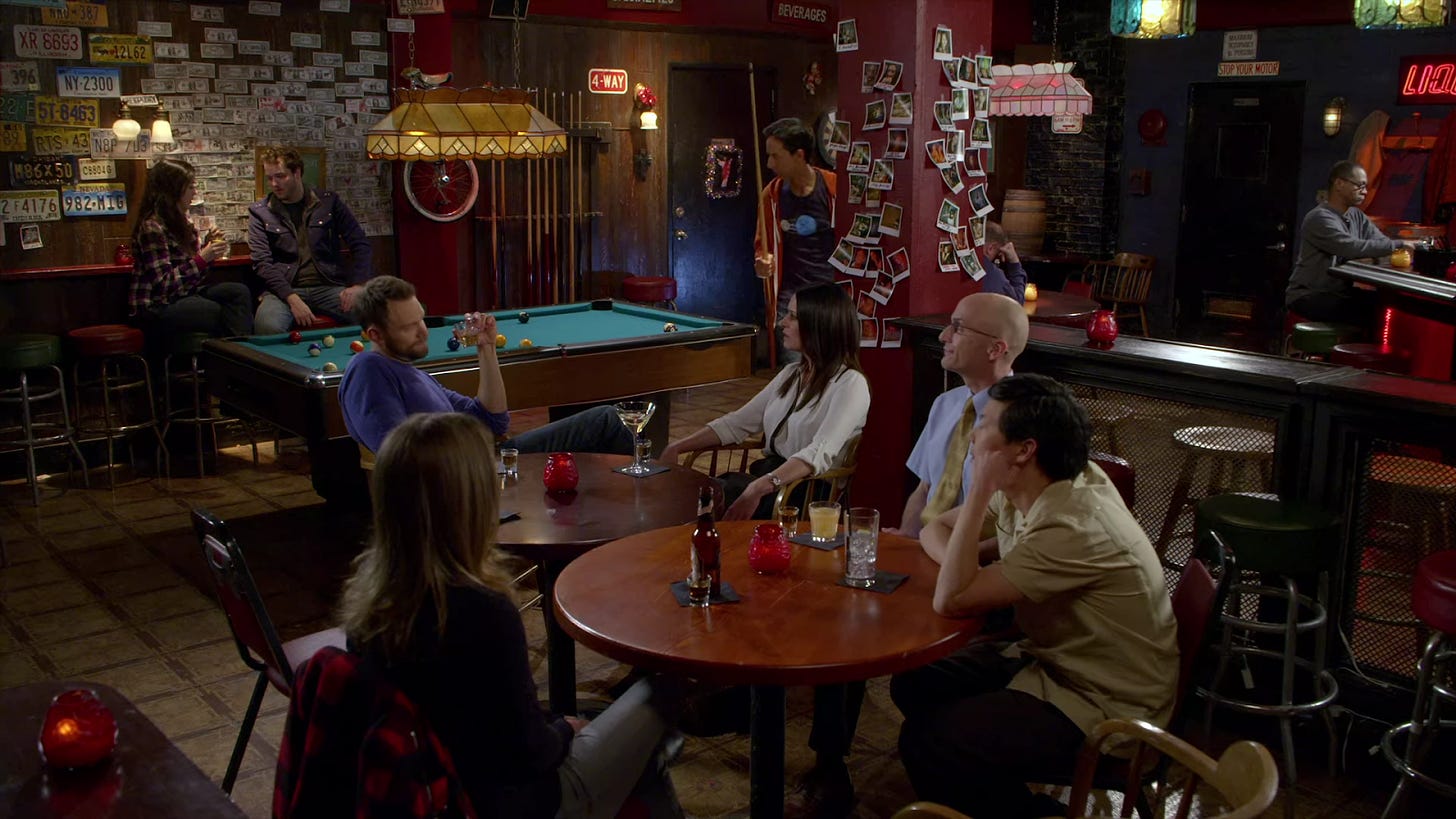Emotional consequences of a Community marathon
Community was a balm in this crazy year. Then it got too real.
For a long time, I watched Friends with my daily bread — an excessive and cyclic routine as comforting and undernourishing like the fast food I usually eat. Then came Community. It took a boylet’s recommendation for me to finally sit down and watch it (just like my belated appreciation for Avatar: The Last Airbender — I’m sorry I settled for ABS-CBN Primetime Bida growing up!). The first few episodes were above average sitcom variety but it was deep into season one when things got inventive. From then on, it was getting hard to choose what were my favorite episodes. The paintball episodes (an exercise in channeling action movies, not parodying them, as Abed said in the last paintball episode) were easy picks. There’s the two very emotional Dungeons and Dragons episodes. There’s the alternate universe timeline that showed Harmon’s science-fiction chops with an emotional battering ram which would be on display in Rick and Morty. There’s the insane bottle episode that started with a missing pen and ended with all of the study group naked. There are little gems like the Sophie B. Hawkins episode, the Mixology Certificate episode, which is probably one of the rare episodes that took place outside the community college. And there are the hard hitting ones — two Abed-centric episodes where everything was claymation and when he coaxed the school to play The Floor is Lava in order to process (or not) his feelings of Troy leaving.
I’m of the camp that the show was never the same when it started “hemorrhaging characters” (well, as of now). I even missed the homophobic, misogynist, and racist Pierce as he represented a person who can still be given the chance to shed his flaws (spoiler alert: he hardly did — but he still wasn’t the worst character in the show).
The show’s structure has been analyzed to death by the time the series finale rolled out — no less by the only character (Abed) who was familiar enough with T.V. show tropes. A regular watching of the show is enough to recognize how Community can move on as a different iteration of itself by the time #andamovie flashed on the screen. It’s amazing how Dan Harmon was able to transform the show in its last season, when the community college hijinks-schtick was being traded for a more self-conscious repair of the school’s “flaws.”
But at the center of it all was Jeff Winger, an arrogant, self-absorbed man-child who we rooted for to transform himself (and he did) because we hope that if we were to become a monster just like he was (a no-diploma lawyer who defended Colorado’s trashiest), we would be able to find a shinier version of ourselves with a little help from our found family.
Community is composed of many characters who defined the show’s ethos of a bumbling band of outsiders trying to make the best in a crappy world but it was Jeff who represented it the most. He has always been afraid of moving on, of being stuck in Greendale while rest of the study group went off pursuing something else beyond their world of seven chairs and two tables pushed together. The show has always shown Jeff’s (perhaps) greatest fear: that he’ll be left alone in the school because his motivations didn’t allow him to go beyond his usual coloring lines. He still refused to be a proper teacher, coasting just enough so he can get a salary (is this an effect of his failed attempt at starting a ‘cleaner’ law practice?). Being in the study group allowed him to revel in his youth (there were shenanigans aplenty, even when he refused to participate in them, he would always give in) while refusing to be an Adult (a reminder that Jeff did go to therapy but mainly for his daddy issues, which is probably a cause for a large part of his behavior).
I didn’t think much about that aspect of Jeff until I thought of how I still refused to see myself as an adult even when I’m turing 40 in less than a decade. I guess people like us choose to infantilize ourselves because it’s comfortable, because it’s nice to be taken care of, because it means that there is someone out there looking out for us and that whatever we do is of no consequence — that it’s just fun and games. But then someone flips the switch off and the playroom doesn’t look as nice anymore.
That final scene: a table of adults sharing a drink a dive bar isn’t the ending that I want. But it’s warm enough to make room for hope. “You can’t always get what you want.” But if you try sometimes, you really do get what you need. That has always been Community’s message to us all, from the moment Jeff cobbled together their study group, to the moment Britta settled down that bar chair and said “Now, this is the show!” We always got what we need from this show. And more.




